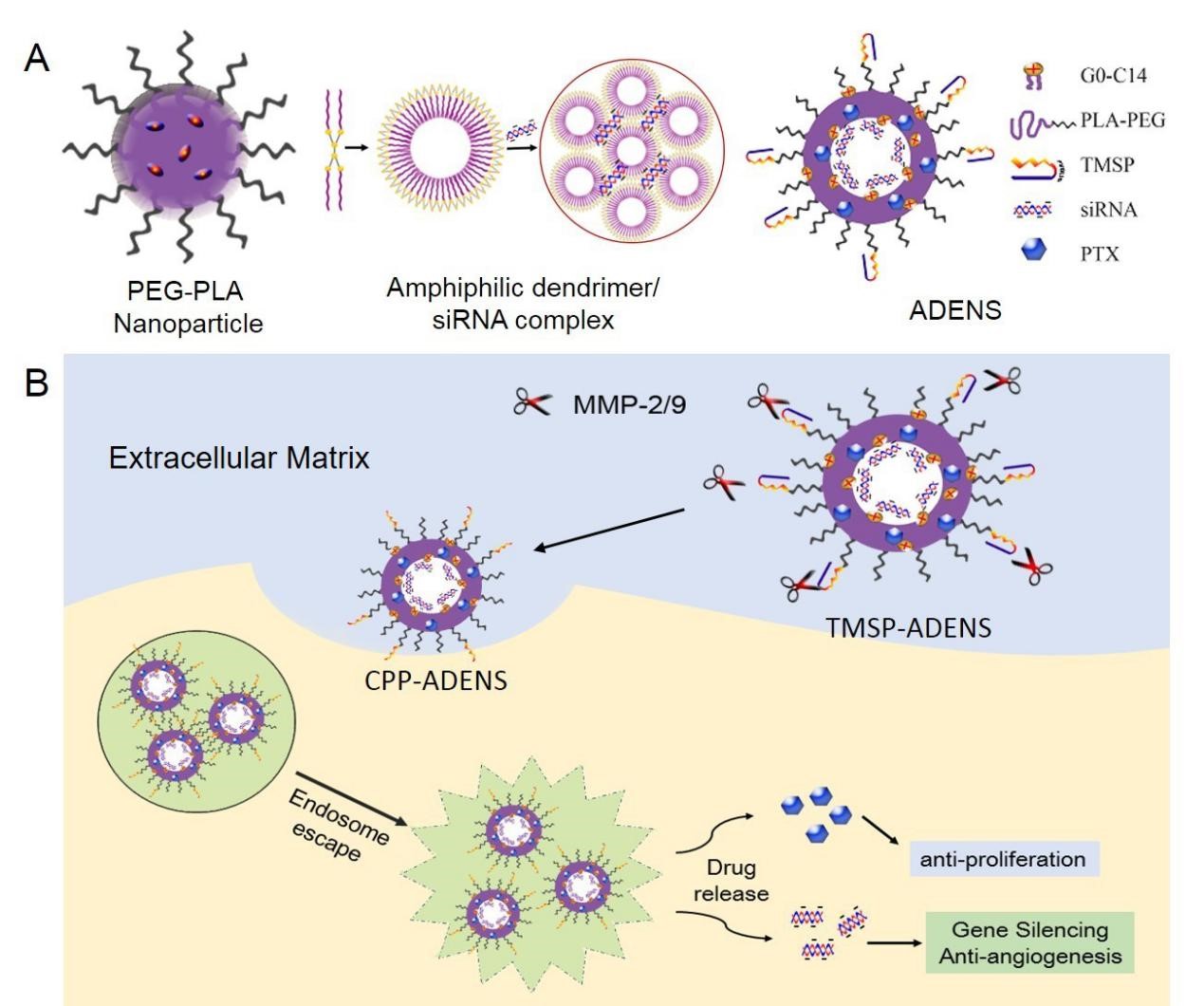Amphiphilic dendrimer engineered nanocarrier systems for co-delivery of siRNA and paclitaxel to matrix metalloproteinase-rich tumors for synergistic therapy
Xin Li, A-ning Sun, Yu-jie Liu, Wen-jie Zhang, Ning Pang, Shi-xuan Chengand Xian-rong Qi*
NPG Asia Materials, 2018, 10:238–254. DOI 10.1038/s41427-018-0027-4
Abstract: Combinations of chemotherapeutics with small interfering RNA (siRNA) can incorporate the advantages of their different mechanisms to exert a synergetic effect. A safe and effective vehicle for simultaneous delivery of the components to tumor cells is a prerequisite for obtaining the optimum effect. We developed an amphiphilic dendrimer engineered nanocarrier system (ADENS) for co-delivering paclitaxel and siRNA for cancer treatment. This nanocarrier possesses a unique hollow core/shell structure in which siRNA is incorporated in the hydrophilic cavity and large quantities of paclitaxel are stored in the hydrophobic interlayer, while the outer PEG layer serves to prolong the circulation time. Further modification by tumor microenvironment-sensitive polypeptides (TMSP) significantly enhanced the cellular uptake, tumor penetration and tumor accumulation of the ADENS by a tumor microenvironment-triggered mechanism. TMSP-ADENS had prominent therapeutic effects at a relatively low drug dose both in vitro and in vivo. In A375 xenograft mice, TMSP-ADENS/siRNA/PTX showed the highest VEGF mRNA inhibition rate of 73% and suppressed tumor growth and relapse, while Taxol did not show an effect on tumor relapse.The anti-tumor and anti-angiogenic effects were further confirmed in an HT-1080 xenograft tumor model. Our findings, combined with the known biodegradability and tunable physicochemical properties of these polymers, suggest that this TMSP-ADENS can be a robust co-delivery system for cancer combination therapy in the future.
Editorial Summary
Cancer therapy: Nanoparticles fuse genetic weapons with chemotherapy
A hollow core?shell nanomaterial can inhibit tumor growth and relapse in mice while avoiding side effects from high-dose chemotherapy. Xian-rong Qi and co-workers at Peking University in China achieved this by combining small interfering RNA — molecules that safely shut down specific genes — with chemotherapeutic drugs. The team used emulsion chemistry to encapsulate their components into a dendritic nanocarrier having three chemical zones: the hydrophilic hollow core holds the RNA oligomers, a middle lactic acid-rich zone accommodates the hydrophobic drug paclitaxel, and a polyethylene glycol shell provides biocompatibility. Further modification of the dendrimer with cell-penetrating peptides enhanced uptake into tumor microenvironments. Trials with both models and xenograft mice revealed the co-delivery system released its cargo over long timeframes for high levels of cell apoptosis and tumor suppression rates of up to 78%.

Keywords: Amphiphilic dendrimer engineered nanocarrier system (ADENS), tumormicroenvironment-sensitive polypeptides (TMSP), co-delivery of siRNA and chemotherapeutics, synergistic cancer therapy, tumor recurrence.
https://www.nature.com/articles/s41427-018-0027-4